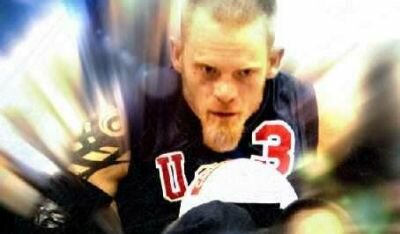|
|
| Tookey's Review |
|
| Pro Reviews |
|
| Mixed Reviews |
|
| Anti Reviews |
|
| Cast |
|
| |
 |
| |
| Released: |
2005 |
| |
|
| Genre: |
SPORTS
DOCUMENTARY
|
| |
|
| Origin: |
US |
| |
|
| Length: |
88 |
|
| |
|
| |
|
|
| |
|
|
Despite its title, Murderball is a life-affirming picture, and should be obligatory viewing for anyone who regards the Paralympics as a second-rate imitation of the real thing. It’s an interesting, sometimes moving documentary about wheelchair rugby. Through the sporting rivalry between two international teams, the USA and Canada, it reveals a good deal about men coping with paralysed legs and impaired arm movement.
|
Reviewed by Chris Tookey
|
It’s unsentimental and frank about the way testosterone doesn’t disappear with the loss of feeling from the lower half of a male body; and there’s something oddly inspiring as well as faintly unnerving about the ferocity with which the sportsmen attack each other in their Mad Max-style chariots.
Two characters come across very memorably. The Team Canada coach Joe Soares is, at times, the villain of the piece, “betraying” his own country, the USA, when he is too old for its team and going to work for the opposition. He seems comically over-aggressive and something of a bully towards his able-bodied son, who’s no athlete. But directors Jerry Alex Rubin and Dana Adam Shapiro also show us why indoor rugby has been the making of Joe after childhood polio, and they find pathos in the way he mellows after… well, I won’t spoil it for you.
The other key figure is American player Mark Zupan (pictured), a forbiddingly tattooed, apparently brutish man who broadens into a surprisingly likeable chap who doesn’t bear malice even to the friend whose drink-driving left him in a wheelchair.
Murderball is one of the year’s most impressive documentaries. It shows us not only that sport can help people to cope with disability, but also that competitive sport brings out the best in many of us – not just by instilling discipline, tenacity and team spirit, but by teaching us how to live with such inevitable parts of life as dependency, disappointment and failure.
|
|
|
